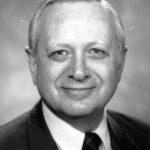The stories about the failure of Enron that appeared in The Wall Street Journal of October 17, 2011 missed out on several interesting points in law and economics.
First and foremost, Jeffrey Skilling and Ken Lay were convicted of fraud even though they had no personal gain from the fraud. The Supreme Court later ruled that the “honest services” version of fraud was too vague and ruled that only bribes and kickbacks are illegal.
By contrast, Andrew Fastow, then chief financial officer of Enron, established the off book entities where much of Enron’s debt was parked. To be legal the off-balance-sheet special purpose entities were supposed to be independent of Enron. But Fastow did not let this happen. Indeed, he siphoned off tens of millions of dollars to his personal account by virtue of being an officer of both the partnerships and Enron. He was the prosecution’s best witness against Skilling and Lay. But here Fastow’s story was mixed. Initial FBI interviews of Fastow indicated that the lack of independence was not reported to Skilling. Fastow later testified just the opposite. The earlier exculpatory testimony was kept from the defense by both the prosecution and the trial Judge Sim Lake. It was only later released by the appellate court, too late to be used during the original trial. For his later testimony, Fastow’s sentence was eventually reduced to just six years and was released to a halfway house in May of 2011.
Skilling was convicted on only one count of insider trading out of ten charges in the indictment. According to courtroom observers, the prosecution won conviction because the trading occurred after 9/11/2001, and therefore it was “unpatriotic.” Actually, this transaction was one of a long series by Skilling that served to monetize the gain from developing the natural gas futures and options derivatives, now among the nation’s most liquid contracts because they serve to hedge the volatile risk in natural gas and electricity prices.
It is interesting to compare the behavior of Skilling with that of Susan Watkins, considered the whistle blowing heroine of the Enron case. After uncovering the illegality of Fastow’s special purpose entities, she sold $47,000 worth of Enron shares. To most this would appear to be a classic case of insider trading. Nevertheless, she was given a walk by prosecutors in exchange for damning testimony against Skilling and Lay.
Perhaps the most egregious error in the Enron case was the denial of a change of venue. Passions in Houston were running high with so many of the residents and their friends who were personally affected with Enron’s collapse. Supposedly the bias in the jury pool was to be remedied by questioning of the jurors during voir dire. But Judge Sim Lake allowed only five hours of questioning and then he dominated the session. In the decision by the Supreme Court, Justice Sonia Sotomayor dissented from the majority on the issue of the possible bias in the jury pool.
Taken together, the District Court’s failure to cover certain vital
subjects, its superficial coverage of other topics, and its
uncritical acceptance of assurances of impartiality leave
me doubtful that Skilling’s jury was indeed free from the
deep-seated animosity that pervaded the community at
large.
Thus, Jeffrey Skilling was convicted of fraud where he did not benefit personally, by a biased jury (according to one Supreme Court Justice), and of insider trading because he was “unpatriotic” in selling Enron shares after 9/11. Skilling was denied exculpatory testimony by Andrew Fastow and received an extraordinarily long 24-year sentence when a real fraudster and an insider trader received much lighter sentences or was not prosecuted at all.
If the Enron experience is to be used as a guide for financial reform, it is important to get the story straight.
Paul Fisher
Jim Johnston
Paul Fisher is an attorney and Jim Johnston is an economist. Both are directors of The Heartland Institute. The views expressed are their own.




